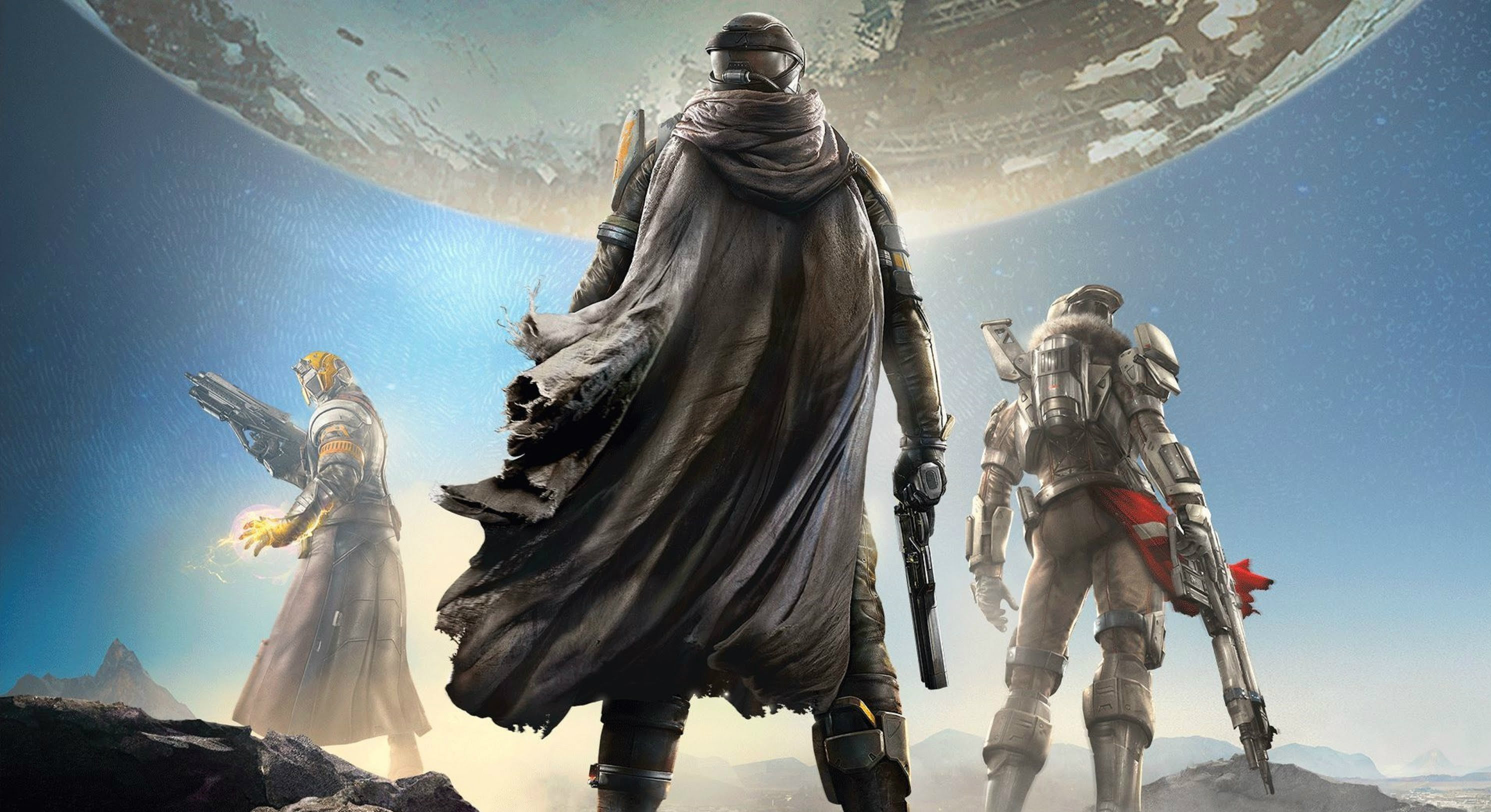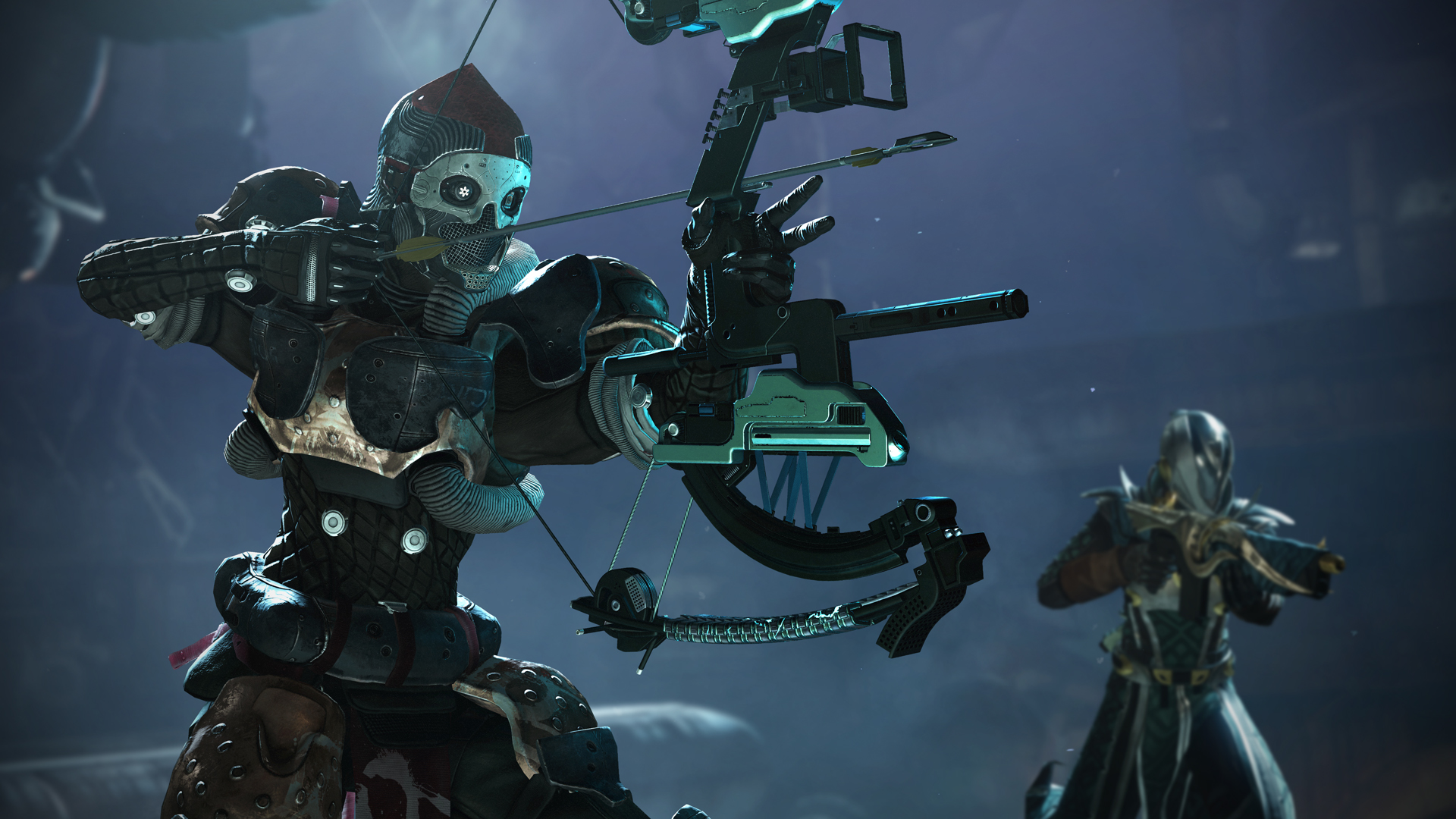
When you've sunk literally thousands of hours into playing a game, and voraciously consume every piece of rumour and speculation about it, you're unlikely to be blindsided by any one particular piece of news. But that's exactly what happened yesterday, when to the surprise of pretty much everyone Bungie announced it was saying sayonara to its eight-year relationship with Activision, and would be going it alone as the self-publisher of Destiny, effective pretty much immediately.
Tensions between the two have been apparent for some time, spilling over into public last November when Activision expressed disappointment with sales of the Forsaken expansion as part of an earnings call. That sentiment was later rebutted by game director Luke Smith, who said "We are not disappointed with Forsaken. We set out to build a game that Destiny players would love, and at Bungie, we love it too. Building Destiny for players who love it is and will remain our focus going forward."
You hardly need a sniper scope to read between the lines. Post-launch, Destiny 2 was rightly criticised for catering too hard to casual players, leading to an anemic endgame that left 'hobbyist' (ie hardcore) players frustrated by the lack of reasons to log-in. With the advent of the excellent Forsaken expansion, many of those criticisms were addressed. Building on the great work done by the secret mission to acquire Whisper of the Worm previously, Bungie created the Dreaming City, a new destination packed with puzzles and evolving challenges.
Veteran players who'd stuck around loved the increased challenge and a lore-rich narrative that also saw the death of fan favourite Cayde-6. But clearly not enough of those casuals came back to sample the new style Destiny for Activision's liking. On that same earnings call, publishing boss Coddy Johnson mentioned wanting to “improve the pace of innovation and cadence of in-game content" adding that because some franchises were underperforming, Activision would need to "drive stronger engagement and in-game revenue generation".

For the foreseeable future, Destiny 2 will remain on the Battle.net launcher, as confirmed yesterday by Blizzard. However, the PC port (which it should be noted is excellent) was a created in collaboration with Vicarious Visions, a New York developer which has been wholly owned by Activision since January 2005. I reached out to ask whether the split means that partnership will now end, as seems likely, but was told no further comment at this time.
That last part sent a collective chill down the community's spine. Destiny's 2's microtransactions have long been a pain point for players, with particularly strong pushback over the amount of content that was gated behind the in-game Eververse store versus earned from for, y'know, actually playing the game. In recent expansions however, Eververse has largely been brought to heel. For regular players, it's entirely possible to collect all of its inventory without spending a dime, but Johnson's statement signalled a return to the bad old days might be on the horizon.
With Bungie now master of its own Destiny, that scenario looks less likely. At least that's what players seem to think. When the news broke late yesterday, the reaction I saw (the related Reddit thread has 28k upvotes and hit the top of the r/all front page) was overwhelmingly positive, laced with some amount of caution. Of course it's easy to frame the breakup as Bungie the frustrated creatives finally slipping the shackles of their evil paymasters Activision. But as with the end of any relationship, unless you were on the inside, trying to accurately apportion blame for what went wrong is a fool's errand.
What I can confidently say is that seeking to blame Activision for everything is unreasonable. It wasn't Activision's accountants who decided Destiny 2 should use the entirely unloved double-primary weapon system at launch, which sucked a chunk of fun out of the gunplay. And it won't have been Activision CEO Bobby Kotick who designed a hidden XP scaling system that throttled Bright engram drops or failed to balance patch the Crucible for five months. Even the hated Eververse store was, as far as I understand it, an approach suggested by Bungie as a money-making alternative to the punishing DLC schedule it had originally signed up for.
Keep up to date with the most important stories and the best deals, as picked by the PC Gamer team.
Solo won't be flawless
In Bungie's statement yesterday it acknowledged that "self-publishing won’t be easy; there’s still much for us to learn as we grow as an independent, global studio." Which is to say that there will still be mistakes. How could there not be? Creating a game of this scale and complexity is a hell of a thing. This is a playerbase with wildly varying desires and demands, not just in terms of the casual-to-hardcore spectrum, but also PvP vs PvE, and even trying to please the brainiacs on r/raidsecrets who love solving opaque puzzles without alienating the shooter fans who just want to delete aliens.
Bungie is much better placed to solve problems without having to worry about Activision's annual targets.
But here's the other thing I can confidently state: Bungie is much better placed to solve those problems without having to worry about hitting Activision's annual targets, which clearly have been a limiting factor on the creative process, even if we can't pinpoint the exact impact. As seen with the issues around this week's Niobe Labs puzzle (it's still unsolved, by the way), the studio won't always land everything perfectly. That was a great idea, with flawed implementation, but I'm glad the developer is confident enough to try these things and hope it hasn't been too burned by the negative reaction. As a community, we may also have to accept that the gap between releases may get longer, though I think the annual pass is an interesting experiment which will continue to be refined over time.
So my reaction yesterday was much the same as everyone else's: Excitement tempered with realism. Bungie isn't blameless for the things that went wrong with Destiny 2, and Activision wasn't out to destroy the game. But on balance, as someone who considers Destiny as one of the great games of my life, seeing it placed entirely in the hands of its creators has to be cause for optimism. Particularly with guys like Chris Barrett and Joe Blackburn apparently at the helm now. They get what makes the game special, which makes the rumours that Destiny 3 will lean hard into its RPG side even more juicy.
Other questions of course remain, like exactly how the game will be financed going forward. It's worth remembering that China's NetEase is investing $100m into Bungie, but that's for an entirely different game. The details can wait for another day though. Last night, I think Luke Smith summed up the mood best with a line harking back to the final boss-melting buff in Destiny's first ever raid:
Guardians make their own fateJanuary 10, 2019
With over two decades covering videogames, Tim has been there from the beginning. In his case, that meant playing Elite in 'co-op' on a BBC Micro (one player uses the movement keys, the other shoots) until his parents finally caved and bought an Amstrad CPC 6128. These days, when not steering the good ship PC Gamer, Tim spends his time complaining that all Priest mains in Hearthstone are degenerates and raiding in Destiny 2. He's almost certainly doing one of these right now.


